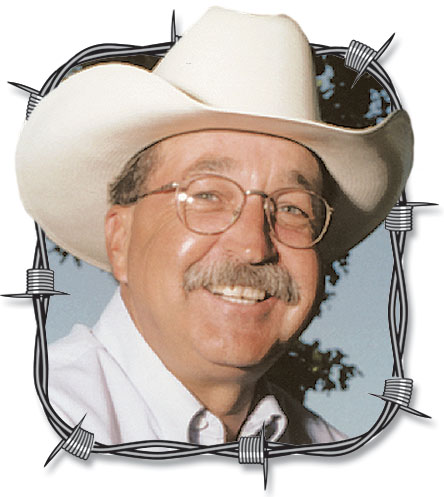 Given the current conditions we’re all facing in my part of the country, I was reminded of a meeting I attended a few years ago. The situation was very similar to this year – a really short supply of hay and an even shorter supply of grass that had turned brown much too soon.
Given the current conditions we’re all facing in my part of the country, I was reminded of a meeting I attended a few years ago. The situation was very similar to this year – a really short supply of hay and an even shorter supply of grass that had turned brown much too soon.
I’m not big on attending meetings, anymore, but this one had caught my eye when it was promoted as, “How to grow more grass on your farm.”
One of the universities had assembled a panel of experts to discuss the predicament and offer suggestions to the crowd of worried and distressed farmers. The podium included university specialists and industry representatives, as well as producers from the area that were experiencing the same problems as us.
The first participant offered ideas of how to use poultry litter as a substitute for fertilizer, pointing out that the litter also added organic matter which could help conserve moisture in the pastures. Another industry representative told of how spraying one’s pastures (with his company’s chemical, of course) would kill out weeds and brush that were competing for the same available nutrients and moisture that your grass needed.
The next speaker went into great detail about the benefits of dividing your pastures into smaller paddocks and rotating the cattle onto a different area each day, thereby offering the livestock new growth and assuring more “even” utilization of the existing forage.
The last expert of the evening promoted the seeding of different varieties of grasses and legumes that could offer extended grazing periods during the summer months. The emcee then opened up the floor for questions and comments.
As I viewed the crowd, I couldn’t help but notice the looks on their faces and the concern in their voices as each one rose to ask sincere and meaningful questions. These were friends and neighbors that had worked a lifetime to put together herds of cattle to be proud of, and they were anxious for any option other than selling a big part of their cattle to markets that were already depressed. I was in the same boat.
When the meeting adjourned, I found myself walking out with a neighbor who was quite a bit older than me and certainly had a lot more at risk. He grabbed his old hat off the rack, shook it against his leg to knock off some of the dust, before pulling it down over his furrowed brow.
“What did you think about the meeting?” I asked, trying to make some small talk in difficult times.
“Well,” he drawled, “that was a passel of good ideas from a bunch of fellers that are a whole lot smarter than me. I just hope they’re smart enough to know that there ain’t any of those things that are gonna work… unless we get some RAIN.”
Jerry Crownover farms in Lawrence County. He is a former professor of Agriculture Education at Missouri State University, and is an author and professional speaker. To contact Jerry, go to ozarksfn.com and click on ‘Contact Us.’






